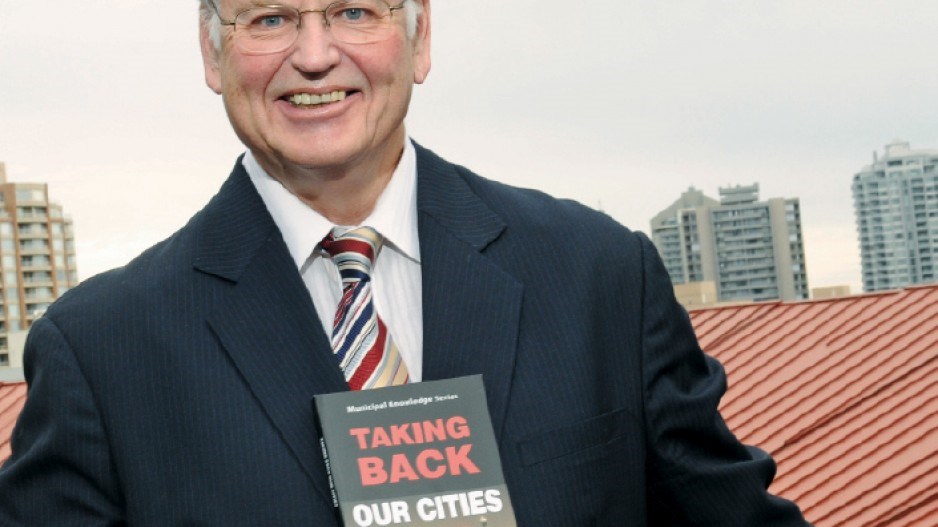Critiquing Premier Christy Clark’s wardrobe or financing city infrastructure?
Hmmm. Let’s see. When it comes to provincial election issues, it’s a no-brainer which of the two will get more airtime.
But, while it has little chance of doing so, that stodgy infrastructure item should take priority, even in a world given over to Twitter-depth analysis.
Urban infrastructure is a key piece of the financing cities puzzle in B.C. and the rest of Canada.
That financing is fast becoming dysfunctional. To those in the know, it already is. Credit Metro Vancouver with at least raising the issue via its regional finance symposium late last year.
The event featured keynote speaker Gord Hume, billed as a civic affairs commentator (read: urban finance troublemaker).
“The fundamental line,” Hume told Public Offerings prior to his symposium presentation, “is simply how do we build dynamic 21st century cities that compete in this global economy with a 17th century tax structure and a 19th century governance model?”
Property taxes, according to the champion of cities as the 21st century’s prime economic engines, are not up to the task. In Hume’s book Taking Back Our Cities, those taxes are described variously as feudal, regressive and medieval.
Municipalities, after all, are at the bottom of the taxpayer funding totem pole, reaping a mere $0.08 from each tax dollar in Canada. The feds and provinces, which continue to download responsibilities on to municipal governments, take the other $0.92.
That’s not good for building the kind of dynamic urban centres needed to secure top global talent to build the economy and attract head offices that will create the economic vitality needed to sustain it. Add to that the question of who’s going to defuse the ticking time bomb of crumbling city infrastructure.
Hume pointed to a 2007 Federation of Canadian Municipality study that pegged the infrastructure deficit for Canadian municipalities at around $123 billion. But he figures that’s a touch low. His estimate: between $600 billion and $1 trillion.
You’re not going to cover that with property taxes, especially when raising them significantly would instantly have the rabble at the gates, torches in hand, demanding political heads on sticks.
While recently released Canadian Federation of Independent Business (CFIB) data gathered from 2000 to 2010 showed that some Canadian municipal governments are getting spending under control, far too many aren’t. Had they based spending increases on population growth and inflation during the years covered by the study, the CFIB figures British Columbians would have saved $4.26 billion.
But turning the tide on the municipal funding crisis involves more than cutting spending, because, as Hume points out, cities have been burdened with aforementioned responsibilities downloaded from more senior levels of government.
So a new funding deal for cities is needed. That requires senior government action. For B.C. cities, that means making it a priority issue in this year’s provincial election. But that also requires a united municipal government front.
Out our way, that’s asking a lot, considering that even initiatives that would yield obvious benefits across municipal boundaries like instituting a regionwide municipal police force are virtual non-starters in the balkanized reality of Metro Vancouver.
But unless local political fiefdoms are dismantled, municipalities won’t have the leverage to extract a bigger cut of tax revenue from upper government levies like the refurbished PST. And without that new deal for cities, B.C.’s urban development and economic growth will stall.
The competition for global talent is intensifying, and the prize for winning that competition is getting richer. Especially for regions like Canada’s West Coast that have the natural advantage of proximity to booming economies.
“Metro Vancouver,” Hume pointed out, “is ideally positioned for this growing global shift to Asia and Southeast Asia.”
But location means little without execution.
That will require beating local political swords into plowshares. And parking that Christy wardrobe issue – no matter how seductively shallow it might be. •




